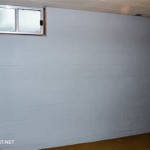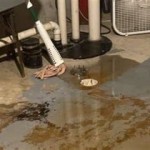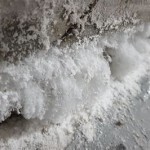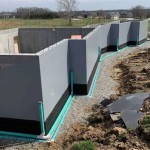Why Does My Basement Keep Flooding?
Basements are often the most vulnerable parts of a home to flooding, which can cause significant damage and costly repairs. Understanding the causes of basement flooding is crucial for homeowners to prevent future problems and protect their property. Here are some of the most common reasons why basements flood:
1. Foundation Cracks
Cracks in the foundation of your home can allow water to seep into your basement. These cracks can be caused by settling, hydrostatic pressure, or structural damage. Even small cracks can lead to significant water leakage over time, especially during heavy rainfall or snowmelt.
2. Poor Drainage
Inadequate drainage systems around your home can also lead to basement flooding. Gutters and downspouts that don't properly direct water away from the foundation can cause water to pool around the home and seep into the basement. Additionally, clogged drains or buried downspouts can create backups that result in flooding.
3. Sump Pump Failure
Sump pumps are essential for removing water from basements that are below the water table. If your sump pump fails or is not operating properly, it can't effectively remove water from your basement, leading to flooding. Regular maintenance and periodic testing of your sump pump is crucial to ensure its functionality.
4. Window Well Overflow
Window wells are designed to allow light into basement windows and provide an escape route in case of emergencies. However, if window wells are not properly sealed or the covers are damaged, water can enter your basement during heavy rains.
5. Sewer Line Backups
A backed-up sewer line can cause sewage to enter your basement through floor drains or other openings. This can be caused by tree roots growing into the sewer pipes, clogs, or other obstructions. If you experience sewer backups, it's important to contact a plumber immediately to resolve the issue.
6. Hydrostatic Pressure
Hydrostatic pressure occurs when water in the soil surrounding your home pushes against the foundation walls. This pressure can be especially strong during periods of heavy rainfall or when the water table is high. If your basement is not properly waterproofed, hydrostatic pressure can cause water to seep through the walls or floor, leading to flooding.
7. High Water Table
A high water table can also contribute to basement flooding. If the water table is located above the level of your basement floor, it can create a constant upward pressure that forces water into your basement through cracks or weak points in the foundation.
Conclusion
Identifying the cause of basement flooding is essential for developing an effective solution. By understanding the most common reasons why basements flood, homeowners can take preventive measures to reduce the risk of water damage and protect their property. Proper drainage systems, regular sump pump maintenance, foundation inspection and repair, and comprehensive waterproofing measures are crucial for preventing future basement flooding.

Causes Of Basement Flooding Utilities Kingston

6 Simple Ways To Prevent Basement Flooding American Dry

What To Do If Basement Floods Every Time It Rains Expert Advice

Causes Of Basement Flooding Utilities Kingston

7 Potential Causes Of Water In Your Basement Newcomb And Company

How To Prevent Basement Flooding Complete Strategy

What To Do If Your Basement Floods And How Prevent It Decker Home Inspection Services

Flooded Basement Cleaning Rapid Water Extraction Drying Service

How To Clean A Flooded Basement Reviews By Wirecutter

How To Prevent Basement Flooding Woodard








